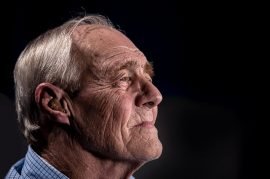
Senior Citizens and Sleep Apnea
As we’ve discussed before, sleep apnea tends to slip undiagnosed in many parts of our community, such as with women and children. This includes vulnerable senior citizens, who are more likely to be dismissed by medical professionals with a “band-aid” in the form extraneous medication hastily prescribed to treat chronic conditions that sleep apnea is known for, such as airway inflammation and heart disease.
It’s well known that people at around 70-80 years of age are twice as likely to be affected by obstructive sleep apnea (OSA) than adults in their 40s. Anatomically, muscle tone weakens with age, and loose throat tissues are more likely to collapse and create an obstruction in the airway.
Why OSA is particularly dangerous to the elderly:
-Seniors that may have been living with the condition for literal decades may have grown accustomed and not think anything is wrong.
-People may interpret symptoms such as hypertension or daytime fatigue to be not particularly concerning, or even expected from an elder.
-Low oxygen supply to the brain is known to drastically increase the risk of dementia and other cognitive issues.
– Chronic diseases caused or exacerbated by sleep apnea (e.g diabetes, hypertension) only worsen with time.
Senior patients need specialized care. This includes monitoring them for conditions that may have gone unnoticed or slipped under the rug. If your senior patients exhibit symptoms of sleep apnea, don’t hesitate to ask about their sleep history.
To learn more about this and many other subjects relating to sleep apnea, check out our upcoming Dental Sleep Medicine Seminars near you at www.sleepgs.com/seminars.

